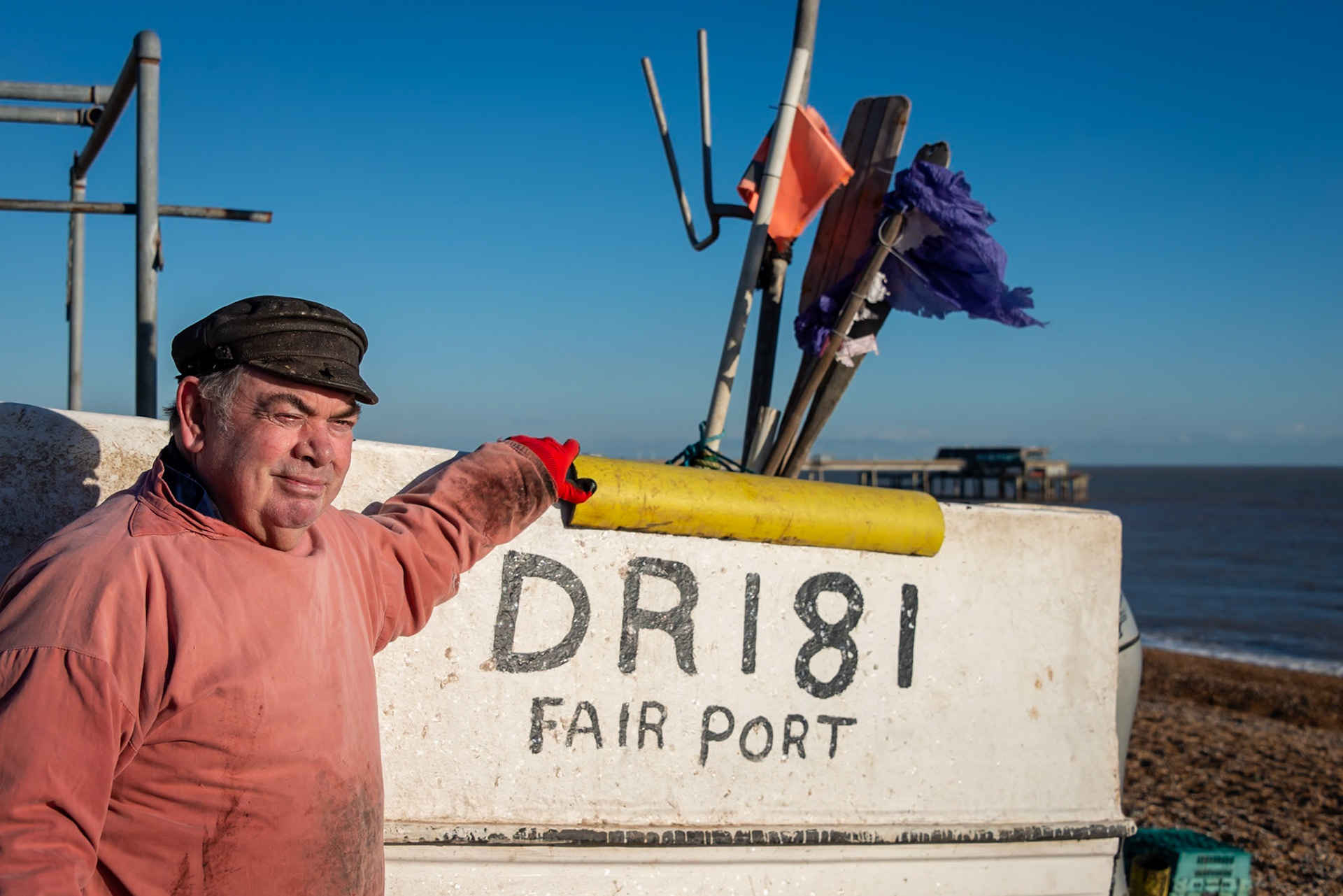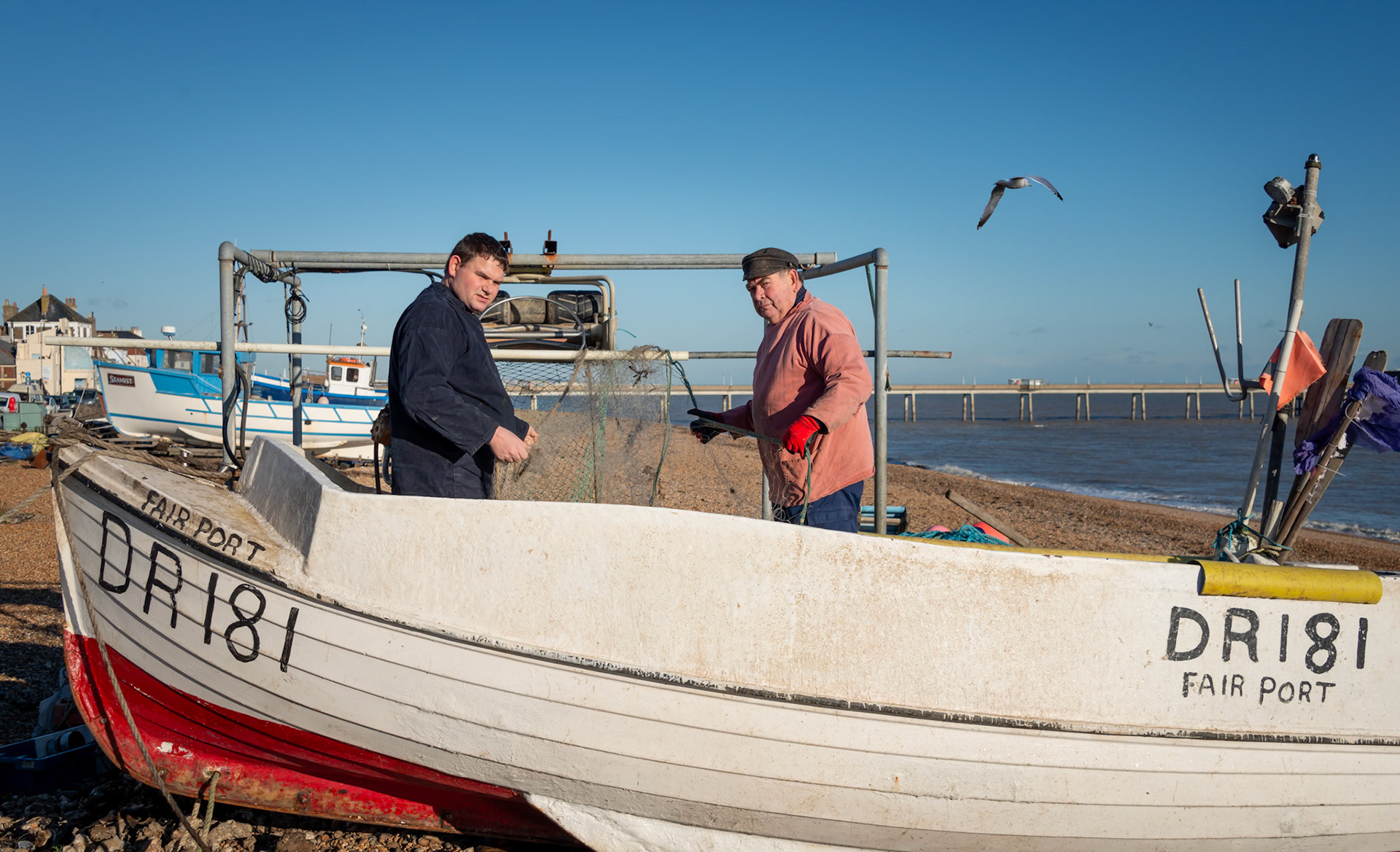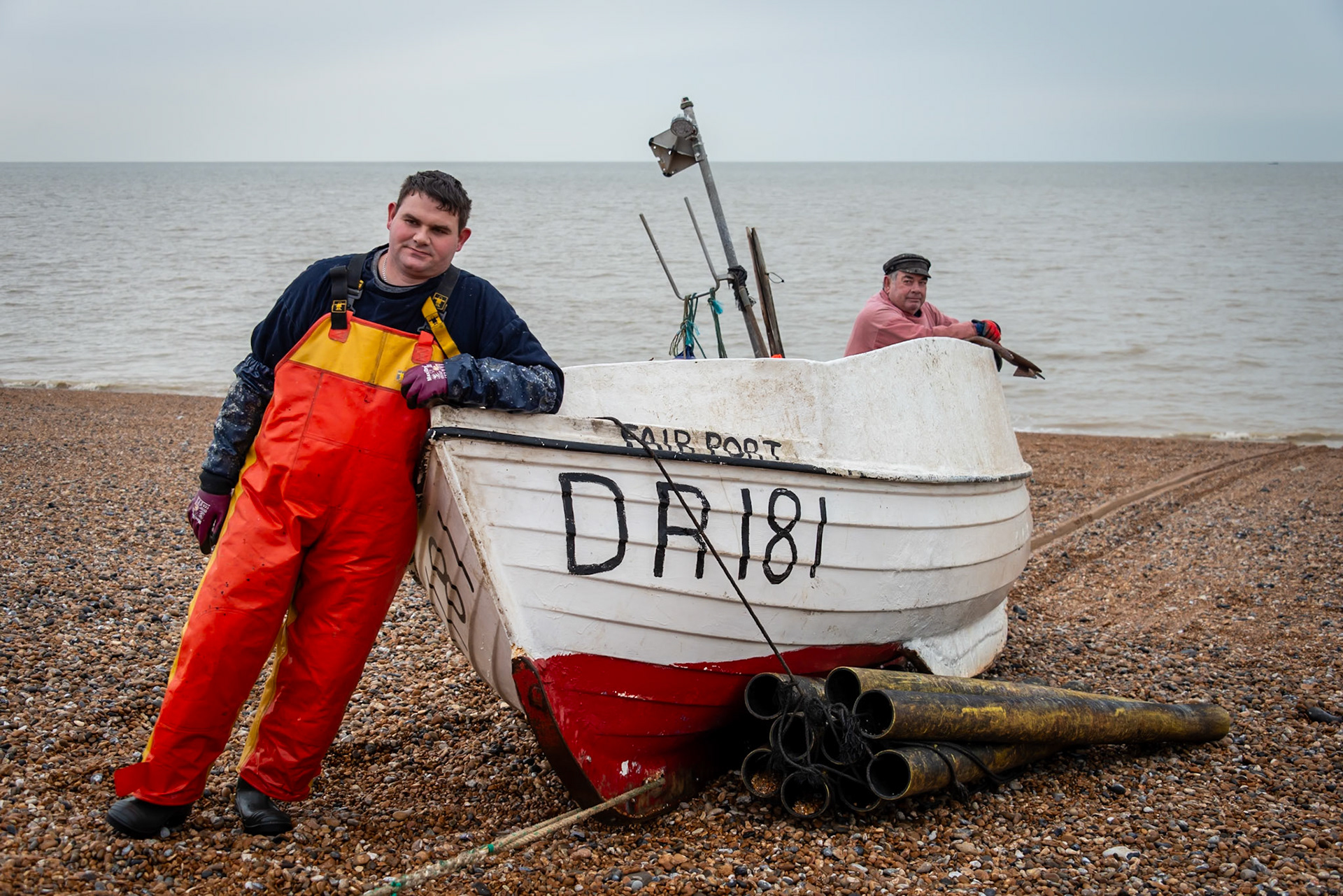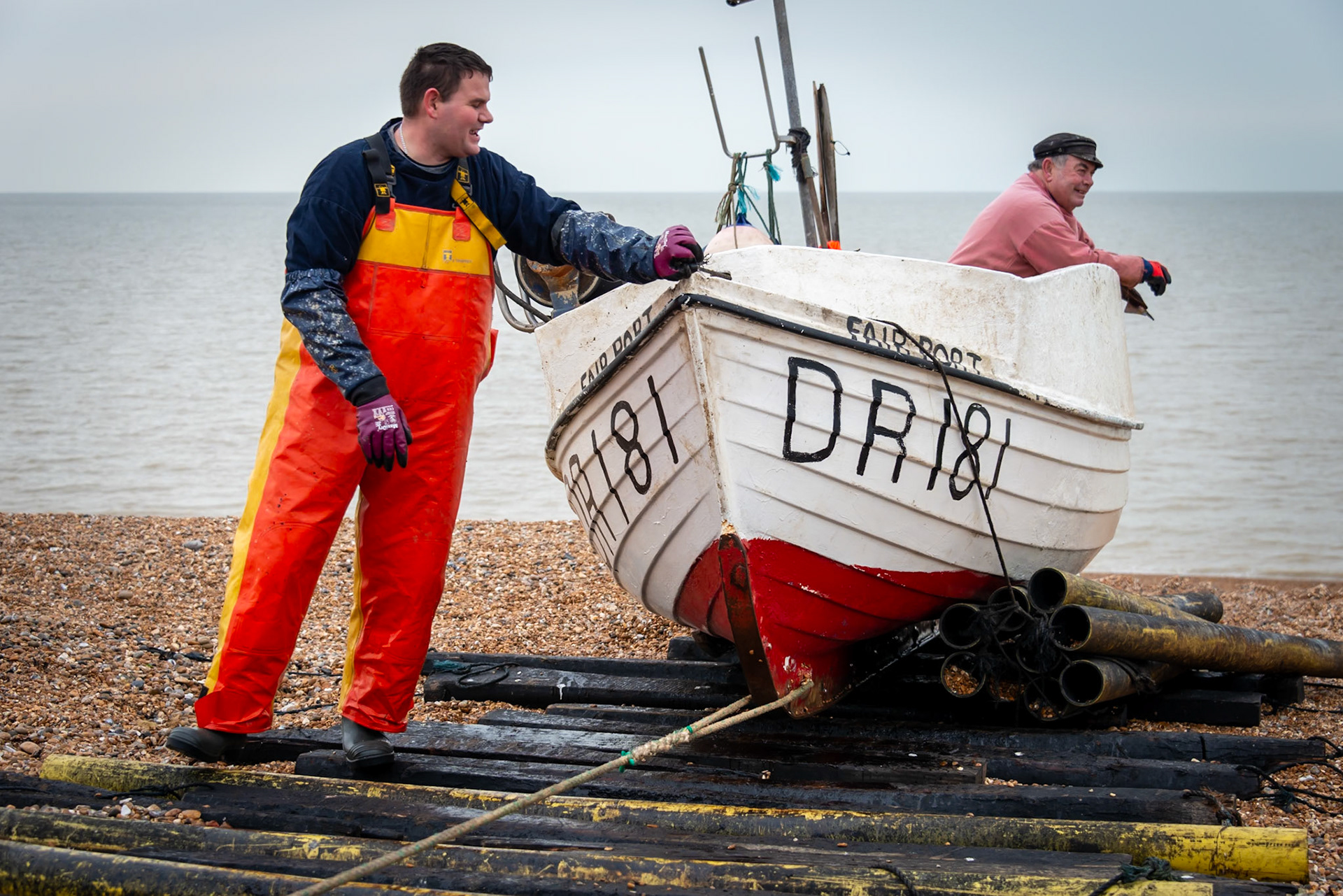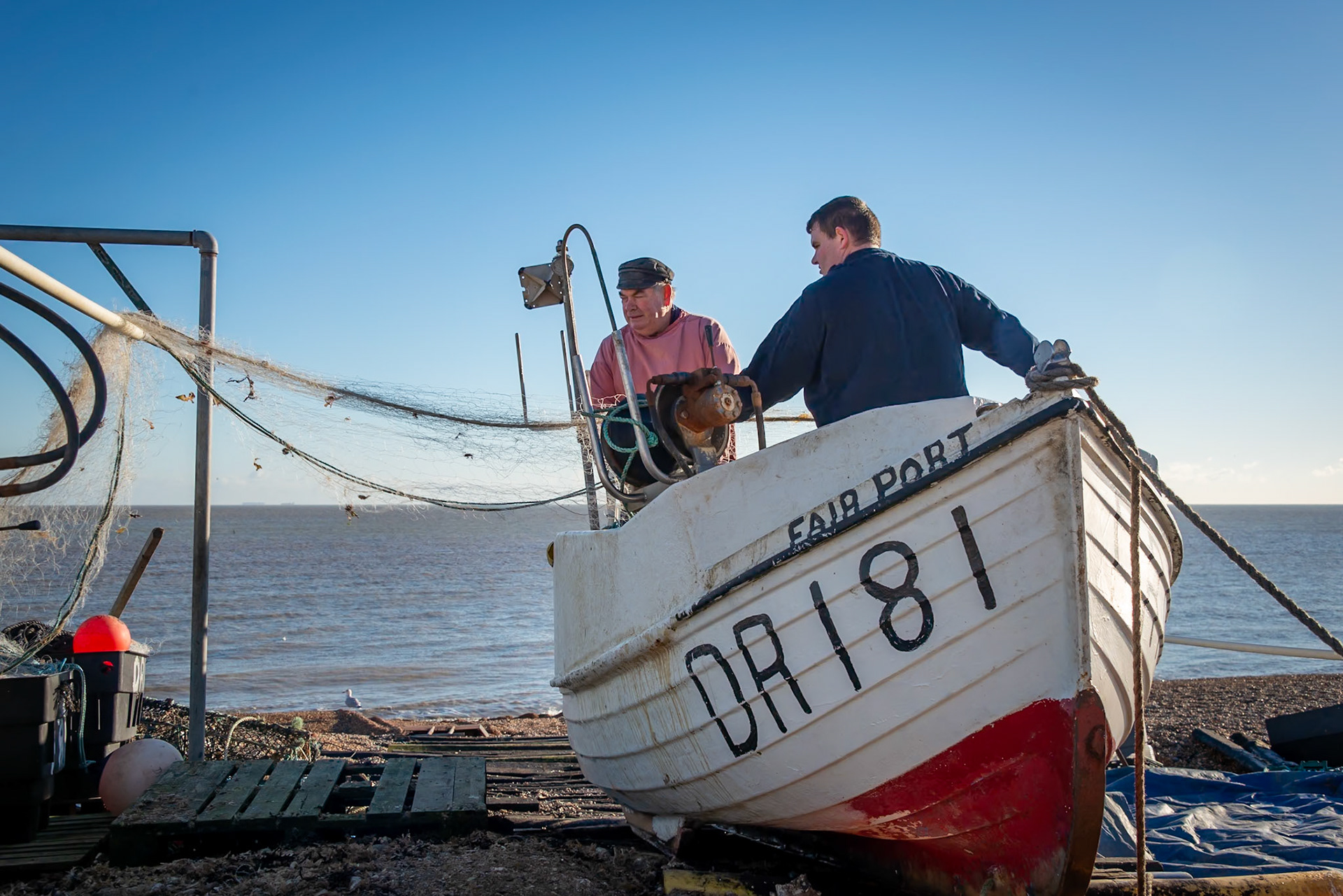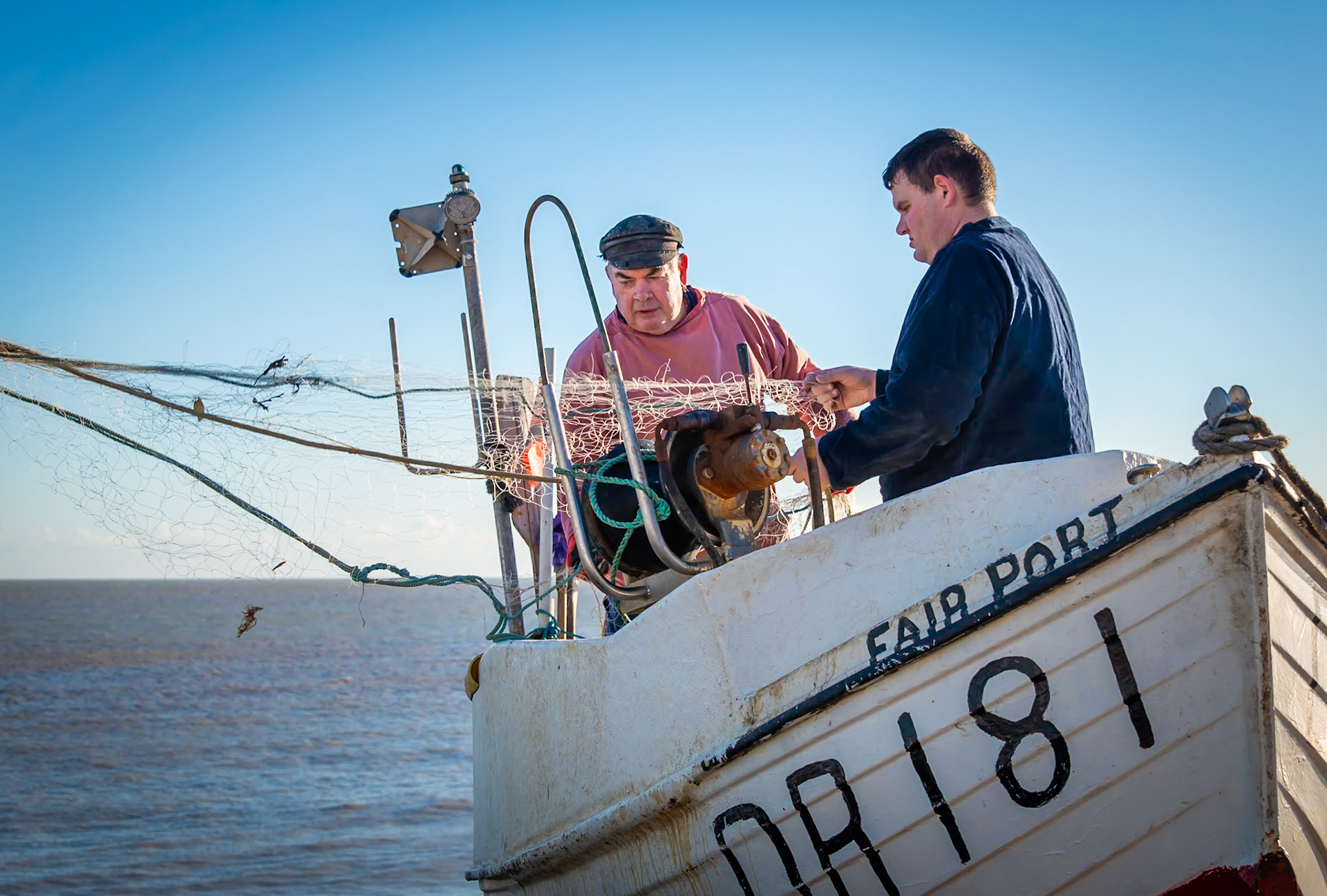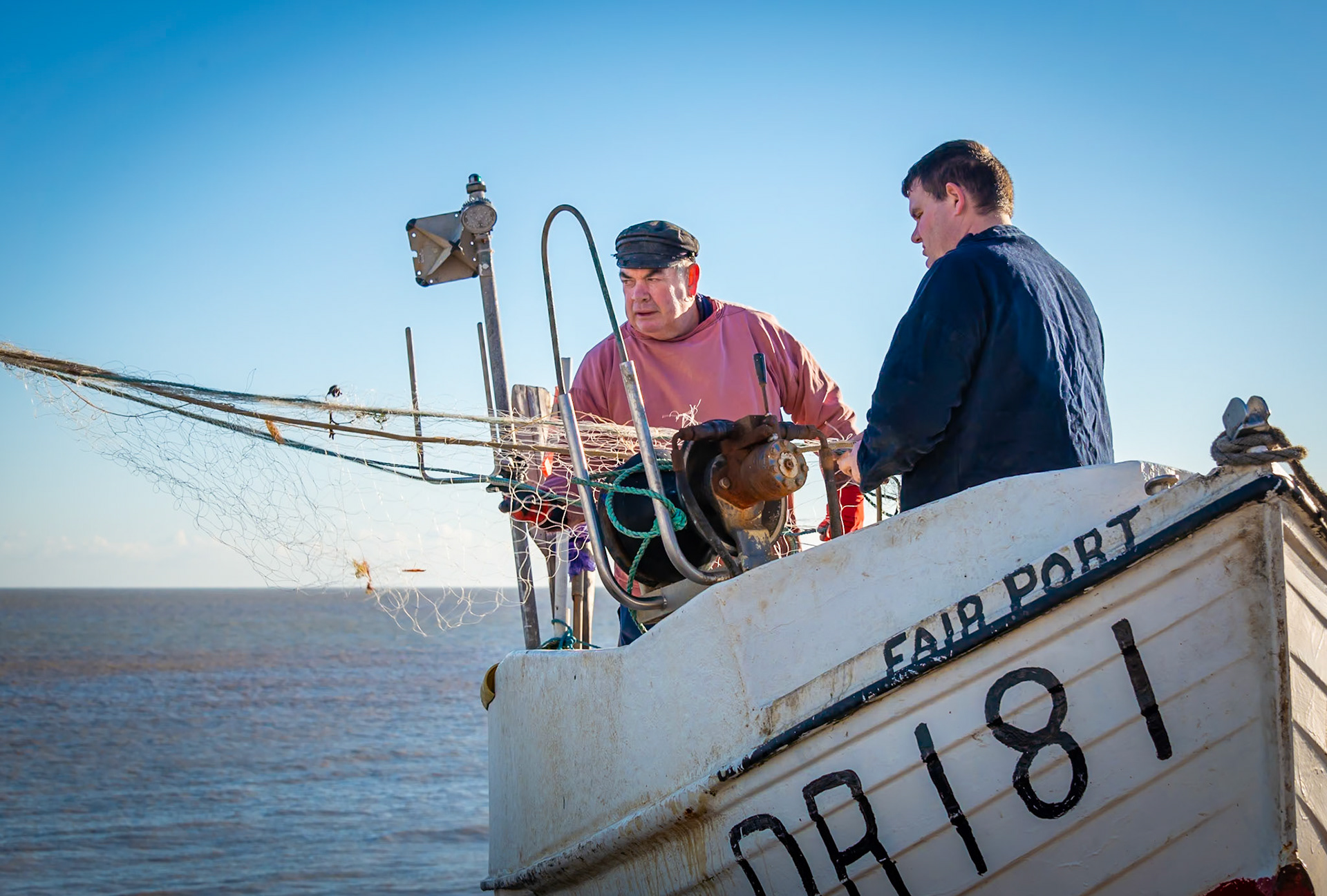Deal has a very long and rich history. Long before Julius Caesar's first landing on Walmer beach in 55 BC, through to the present day, Deal has been on the leading edge of the bulwark shoreline. Even in times of peace, most of Deal's history is associated with seafaring.
As recently as the 1970s, more than 100 boats plied for trade and/or fished off Deal Beach. There are still many boats on the beach but as far as anyone knows, only three of the original boatmen and fishermen are still around and living in Deal: David Chamberlain (below left), David Lawrence (centre) and David Skardon (right). David Lawrence is the last man still fishing commercially.
It was a privilege and a great pleasure to meet, chat to and photograph all three.


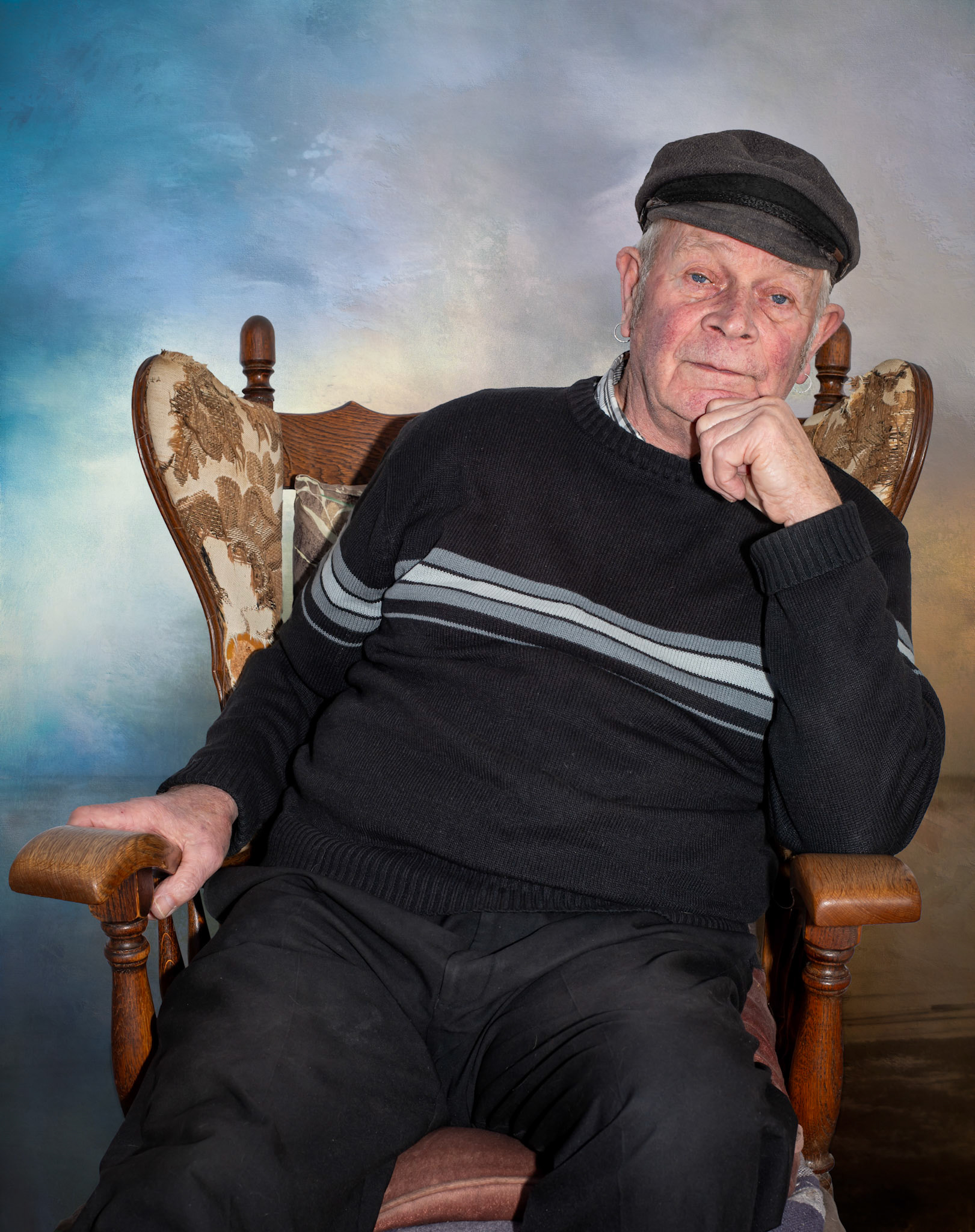
The history of the boatmen, fishermen and anglers of Deal is dealt with fully elesewhere and referenced below. This is a short, photographic tribute to the 'Three Davids', who I met and photographed between 15th and 17th January, 2024.
David Chamberlain
David bought his first boat in 1962. In 1974 he designed and had a boat built. 'Morning Haze', graced Walmer Beach for many years until he sold it in 2008. It is now moored on Deal Beach.
David was, primarily, a boatman and charter boat skipper. When he retired he became the last, full time, licenced charter skipper operating from Walmer. He told me that many years ago the town could offer boat places for up to 200 anglers and there would regulary be 50 boats afloat. At the present time just a couple of boats are available to anglers on a occasional basis.
David reports that his passenger-anglers would often tell him that he had the best job in the world. It was not, however, an easy job for any of the boatmen and commercial fishermen launching from Deal. A boatman or fisherman's life is hard the world over; but Deal Beach does not have a 'safe haven' where boats float behind the protection of a breakwater or harbour wall. The moorings at Deal Beach are high up the strand, well above the high water line. They have to be winched and hauled up and down a high, steep, shingle bank. This is only part of the challenge. Before the launch, the shingle beach has to be 'trimmed' with shovels and an iron 'plough' pulled by a steel cable to allow the boat to slide on wooden staves, which in turn have to be oiled and greased. The beach can change shape after every tide and worse after a storm. Launching and landing can take a half day apiece. This is still the case today, as the photos below of David Lawrence and his son Stefan, illustrate.
David wrote a book - Deal and Walmer's Piscatorial Past - which he published in 2013. The book records huge catches of fish on rod and line including a wide variety of species, notably large cod, no longer seen in this part of the English Channel. The book tells a colourful story of how Deal was for many years, the Mecca of sea angling. A story which I glimpsed from afar in the 'Anglers Mail' of the late '60s and '70s. Growing up as a lad in Liverpool, I fished the barren waters of the (then) badly polluted River Mersey, catching nothing but a cold and wondering whether I would ever get to visit this mysterious place where men and boys struggled to hold up their huge catch to the camera.
David is the oldest of the reamaining boatmen and fishermen of Deal. He no longer puts to sea but still loves to fish from the beach. He lives in Griffin Street with his wife Hazel.
David Skardon
David was raised in a fishing family at number 6 Brewer Street in the heart of what is now the Deal Conservation Area. When he was growing up the area was home to many families of boatmen, fishermen and boat builders. There were stables and smokeries behind his house.
From the age of 4 or 5 years old, David helped his father, James Thomas Skardon, a fisherman, by splitting herrings and sprats. His mother, Mollie Rose Skardon was an artist. Many of her excellent paintings, on a nautical theme, are displayed around David's house.
From 11/12 years old David made and saved money from fishing. He took a boatman's test at 13 and was the youngest boatman to hold an A license at 14. Leaving school at 14 he took on a trade in boatbuilding with Bob Able at Deal Marine Craft in Middle Street/Coppin Street. Later he worked as a boatman for the Royal Engineers at Dover.
David returned to fishing and owned a number of beach boats, the last two of which he built himself. He also worked on trawlers around the shores of the UK and Europe.
David is an accomplished local historian and author and has a very informative website with a wonderful collection of old photographs.
The website has a link to a large and fascinating collection of 73 YouTube Videos on aspects of Deal maritime history.
David lives in Ripple, just outside Deal, with his dog, Sophie.
David Lawrence
David is the last man fishing commercially from Deal Beach. Weather and tides permitting and with the availability of a crew, David still launches one of his boats from Deal Beach. He hauls the boat up the strand, lands his catch, prepares and sells the fish under a canopy on Beach Street.
This is just part of the story. David was keen that I was around to see him and his son, Stefan, preparing the beach with the big metal 'plough' winched by cable and manually with shovels. It took a couple of hours to shape the ridge of pebbles and shale to a smooth passage which enables the boat to be lowered by winch towards the sea. The launching across oiled and greased timbers is also not for the faint hearted. These boats are very heavy and although there are makeshift 'stabilisers' helping to keep them upright, it is a skilled and potentially hazardous job for two men to guide the boat to the water.
David started working on Deal beach as a 12 year old, helping to move, launch and land boats. He was paid half a crown a day at a time when a paper round paid one shilling. At 13 he fished from a small boat called the 'Teddy Bear' which made him 7 shillings and six pence at a time that his father earned 10 shillings a week. Without calculating relative purchasing power, let's just say that, as a young lad, he was doing very well. He later also worked as a boatman and had a licence to ferry passengers up and down the Channel.
If you are lucky enough to spot his blackboard announcing the date of a landing you will be treated to the freshest fish to be had on this coast. You will also be treated to the banter. A while ago, queuing for fish as they were being taken, still moving, out of the nets, the man in front asked if they were fresh. "No" came the reply, "we keep them for six days so that they taste the same as from the supermarkets".
Below are some photographs of David and Stefan preparing the boat for launching, bringing the boat back in and cleaning the nets. Sadly, on this day, information about the tides was not entirely accurate and the nets did not hang right in the water. This, it seems, was the main reason that the catch was very poor: just one box of a couple of skate (one of which I bought and cooked for dinner), half a dozen huss, a few whiting, a couple of small dabs and a crab.
I had conversations with all three Davids about fish stocks. The general conclusion is that they are greatly depleted and that the fishing gets harder every year. Overfishing, particularly by French trawlers, pollution, plastic waste, wind turbines disturbing marine life and warmer waters were all mentioned as culprits.
Whatever the causes, after roughly two days of hard work, preparing and launching the boat, putting out to sea, fishing, hauling the boat back up the beach and cleaning the nets and other gear, it seemed desperately disappointing. I would have found it soul destroying. David was typically phlegmatic. It is a measure of the man that in reply to my sympathetic but meaningless comments he simply said:
"That's fishing. If it was easy, everyone would be doing it."
